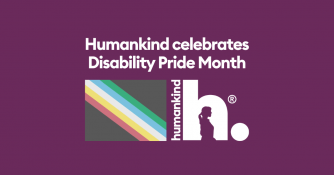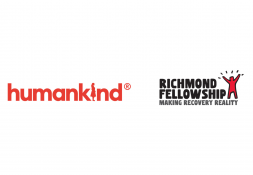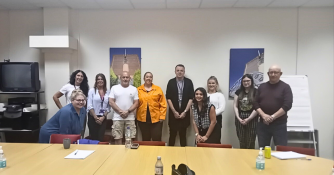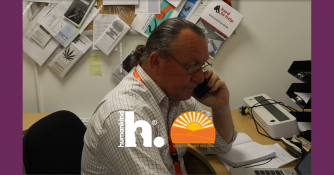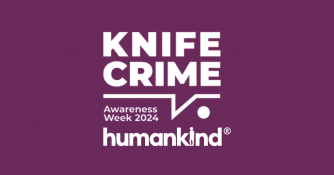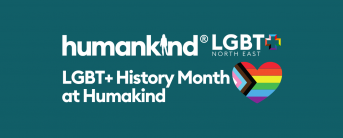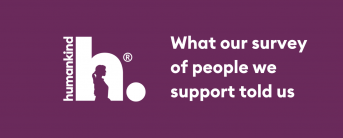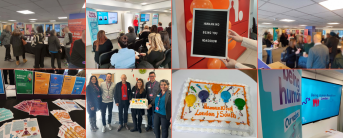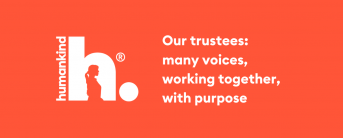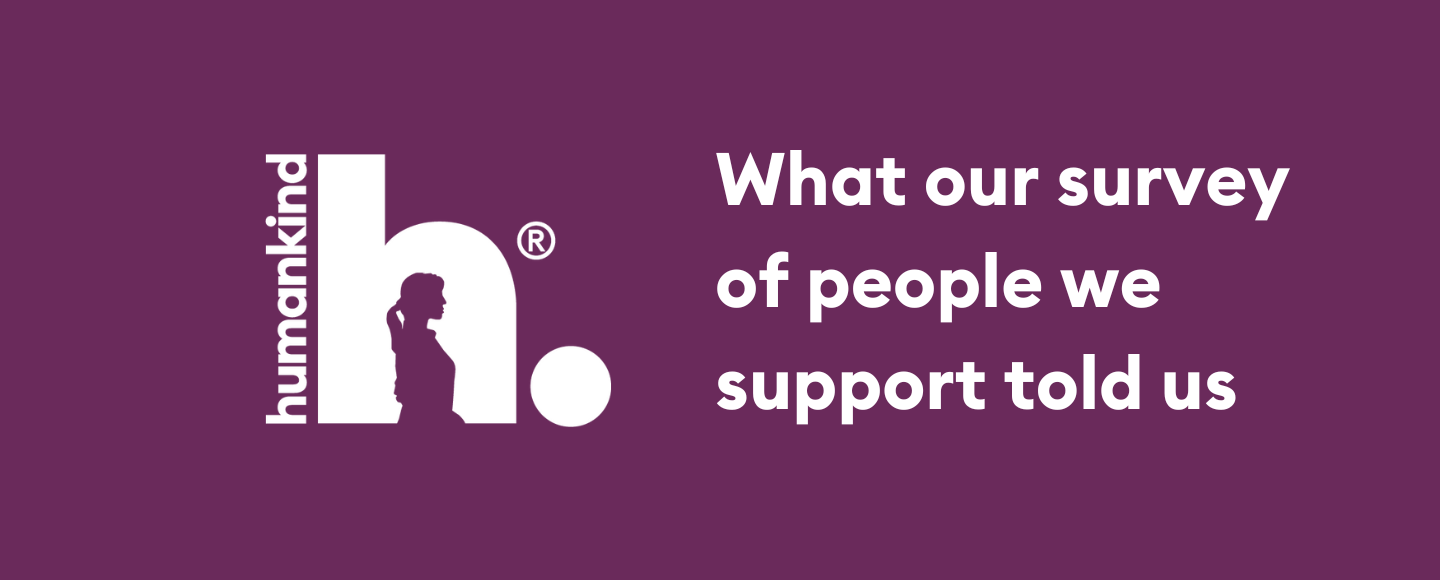
Hello everyone. Joe Alderdice here, Humankind’s Inclusion Manager.
Back in September at Humankind, we ran our annual survey of people accessing our services. This is always a valuable opportunity to check in with communities, beyond the people involved in regular ‘Working Together’ consultation activities, about what we’re doing well and where we need to improve.
We smashed our previous record for engagement with the survey, with responses from 3,748 people. That’s 12% of people receiving structured support from us, an increase of 40% on the previous year. A big reason for this increase was limiting reducing the length of the survey and the time it took to complete, and adding optional equality, diversity and inclusion questions.
In all but one of the questions, over 90% of people responded ‘agree’ or ‘strongly agree’, with 94% of people saying they get the support they need. 97% of people said they feel safe in their service – up from 94% in 2022. Only 88% of people said they knew how to raise a complaint, give feedback or make suggestions. This is up from 86% in 2022, but is still highlighted as a key area for improvement.
 The organisational response to the qualitative questions people were asked.
The organisational response to the qualitative questions people were asked.This time we were keen to hear from more people who experience barriers to engagement. It’s always good when people tell us what we do well, but we can learn even more when people give us uncomfortable truths. Special recognition must be given to David Goodwin, a volunteer at New Vision Bradford, who singlehandedly surveyed 44 people at risk of disengagement.
The survey had a box for additional comments, another valuable source of insight. Service managers have access to all the comments about their service to inform their plans for continued improvement. It is essential that people know their comments have been taken onboard, so we’ve created a ‘You said, we’re doing…’ poster template which our services can display in buildings or include in newsletters.
So, what’s next? Well despite the brilliant work in Bradford, we did not meet our target of speaking to 5% of people who face barriers to engagement. We are currently considering alternative approaches to hearing and learning more from this group. Watch this space.
I want to thank everyone who supported the survey, particularly those who took the time to provide their valuable feedback.
